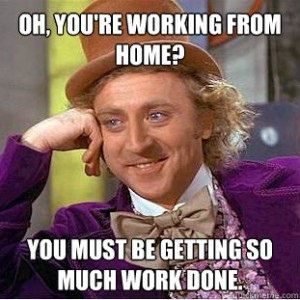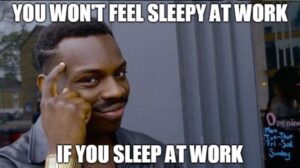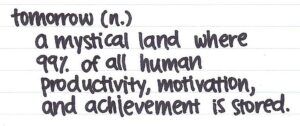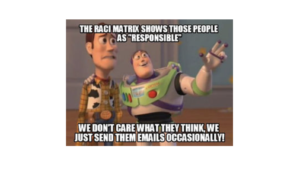I was on holiday when Covid-19 started to really ramp up in the UK. I came home after 2 weeks in paradise to my office being shut and everybody working from home (WFH). On my first day back at work, the UK Government announced that everybody that could WFH should do so, and our office closure was subsequently extended toward the end of April.
My goals in 2020 shifted a little from the relentless post-per-month approach I took last year. This year I’m reading 1 book a month, trying out their suggestions and then reporting back, so there’s a lag to posts starting up again. That said, this unprecedented situation prompted a number of people at work to ask me about WFH productivity… so here we are!
Here are my tips for being productive and staying sane whilst WFH. If I come across anything new that works really well, I’ll update this post.
1 – Have a separate work space
Ideally you’d have your own office, but if that isn’t possible it’s crucial you create your own dedicated work space. This can be especially tricky in a small apartment, but you can make it work! Do not work sitting on your bed.
The problem is that if you don’t create clear separation, you’ll fall into one of 2 buckets. Either you’ll never work productively or you’ll never stop working. The first couple of days last week I worked 13 hour days without even realising, because there was no ‘get up and head home’ type moment.
Ideally use your office or buy a desk, but you can get creative – my wife and I started by clearing off the vanity, but then ended up cleaning the outside table on our balcony and bringing it in. Now we have 2 tables where we work!
We try to avoid using the sofa to work, but at the very least will avoid it toward the end of the day, so we can create that ‘get up and head home’ moment and have a clear end to the work day.
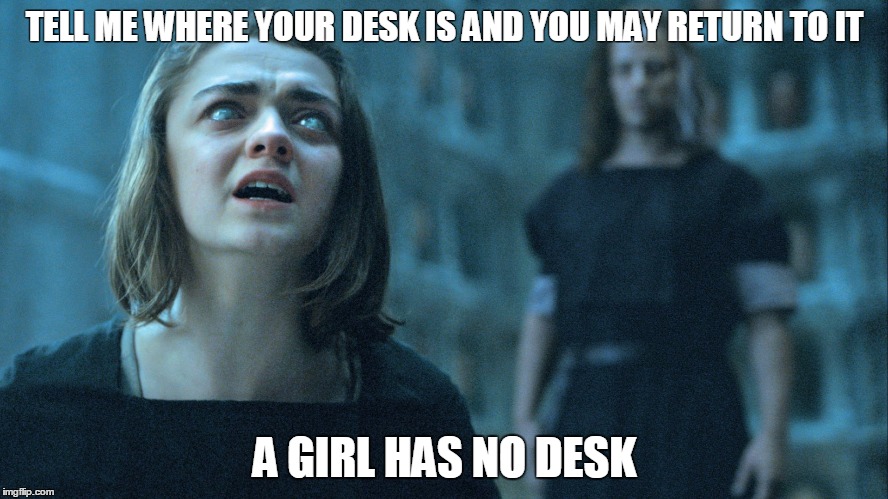
2 – Stick to your morning routine
Do NOT get up 5 minutes before your first meeting and grab your laptop! You need to stick to as productive a morning routine as a ‘typical’ work as possible to set yourself up for success.
My alarm goes off at 0700, I get up, exercise, shower, get dressed into normal work clothes, make breakfast, read the news and then get online.
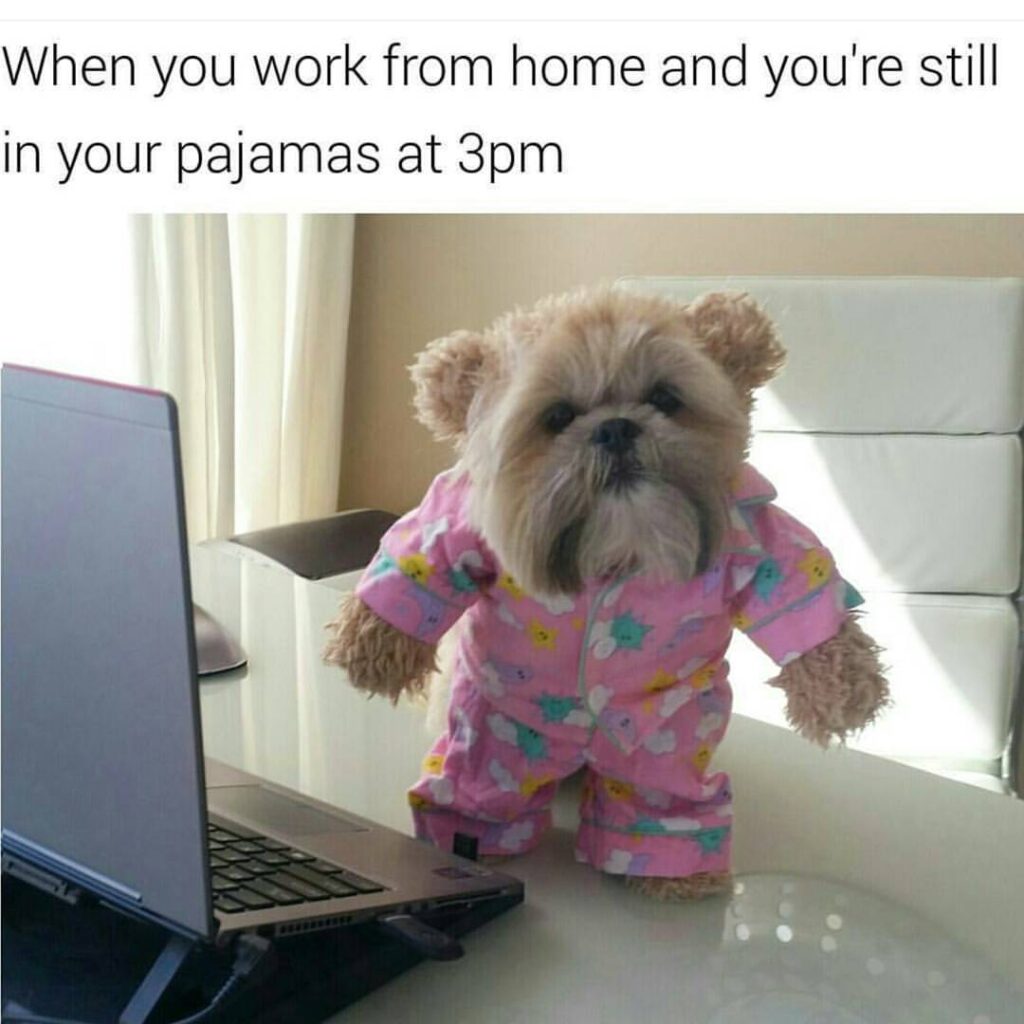
3 – Stay active
Even if you’re not normally physically active, the simple act of getting up and getting to work every day is significantly more physical effort than you’d exert in a day WFH. You also move around the office a lot throughout the day, less so than you would at home (not going out to get lunch, meetings all in one place etc).
Exercise isn’t just healthy, but it’ll keep your mind sharp so you can productive when working.
I’d recommend doing a 30 day challenge – there’s a bunch of these things online (Google is your friend here!) and you can do them with friends and catch up on it over WhatsApp. These challenges are good because they start small and scale up, you’ll notice the gains quite quickly so motivation shouldn’t be an issue after the first 10 days or so.
Tip: A quick and easy way to make a new habit stick is to stack it onto something you already do every day. If you shower every day (I hope you do!) then that’s a good example, just print out your plan and stick it on your bathroom door, then every day that’s what you do immediately before showering. Simple!

4 – For the love of God, respect everybody’s calendars
People cannot see how busy you are, they have no sense of your stress levels or how many things you have to do that don’t require getting on a call. So block time in your calendar (calendar management tips here) for anything you need to get done.
Then… respect everybody else that does the same and expect that from them – scratch that – demand it from them. Treat every single blocker in your calendar as if it’s a client meeting on a $1m deal, do not cancel it or book over it, you need it to be productive.
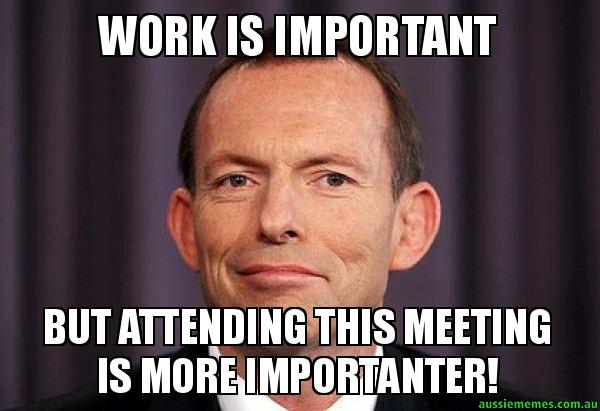
5 – Track what you do!
It doesn’t really matter what tool you use, but you need to hold yourself accountable. Tensions are high right now, everybody has a lot going on at work and at home (now the same place!) and nobody really expects anybody to be operating at 100% – that’s why it’s crucial you’re tracking everything you do, so you can identify if you’re not at optimal capacity and adjust your workload & expectations accordingly to stay sane.
I recommend Trello, it’s amazing (project management tips here), but even just writing down a to-do list in the morning and ticking it off as the day goes will suffice. I’d also recommend an audit of how your WFH strategy differs to your normal office working strategy, using time tracking.
Also, if your boss asks more of you in this department than usual, they are not micromanaging you or anything like that – they’re just not sitting next to you!
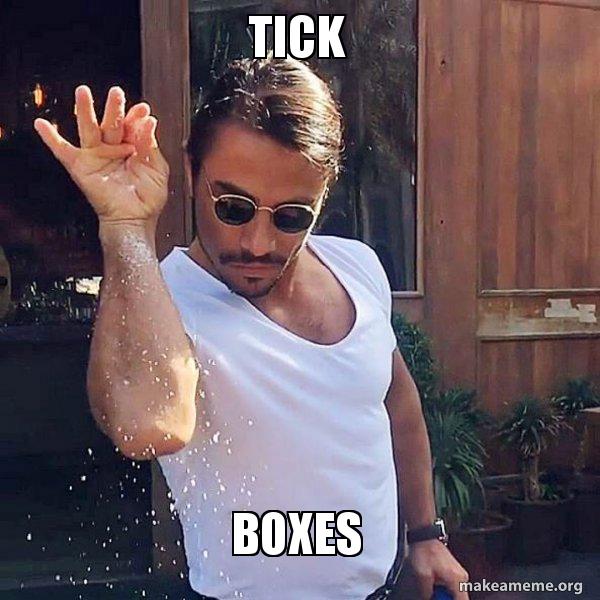
6 – Have fun!
Be more social with your colleagues, text more, check in with each other, jump on calls just to talk about random stuff. You may not be super conscious of it when you’re in the office but most people are super interactive socially in the office. My team is always having a laugh and keeping each other sane, particularly when stress levels are high. WFH has a tendency to make interactions with colleagues purely about work, don’t let that happen!
Happy hours on Zoom, random games etc. are great ways to stay connected. When you join a 121 on video, ask questions about where that person lives – one guy on my team had a fish tank but no fish, which led to an amusing story, another had a Captain America shield on the wall that looked like a poster but it turned out his very talented Son had drawn it straight onto the wall. I’m personally finding it easier to build personal connections with people on my team right now than when we’re in the office, take advantage of it and something good can come from all the chaos.
It’s also important your home life doesn’t just become all about work. As a stereotypical British person, I’m partial to a beer or a glass of wine after work – my wife and I use that as a way to signal the end of work, when 6pm rolls around it’s time to have a drink, migrate over to the sofa and finally turn the TV on and relax.
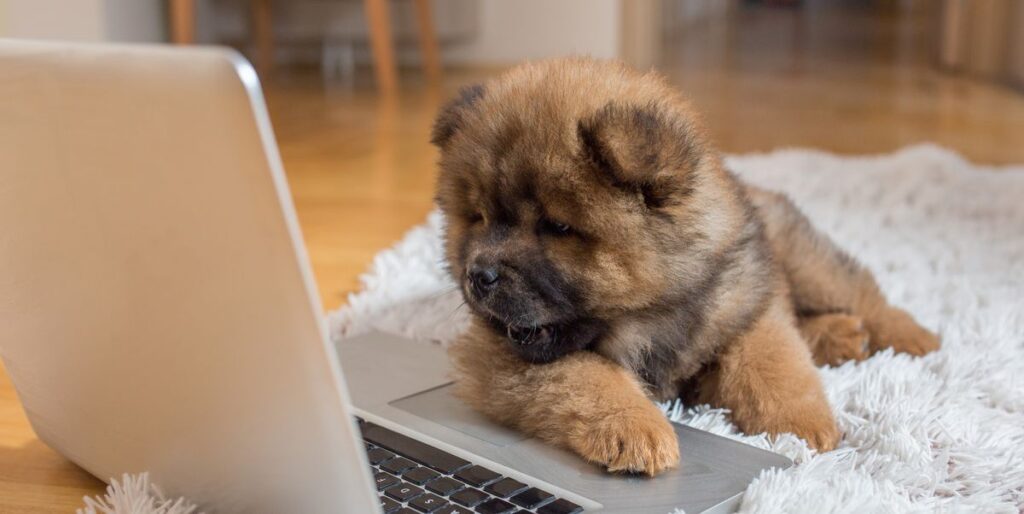
That’s all folks
Hope you found this useful. As mentioned, I’ll add to this if/when I find new tips to help make this situation more tolerable and productive!
The most important thing right now is that you all stay safe and healthy. At the end of the day, work is just work, it’s not life. Your bosses will understand that there’s a lot more than just figuring out how to WFH effectively and this situation will effect people differently. You do you, and if your company is worth its salt, they’ll support you accordingly.
